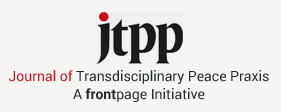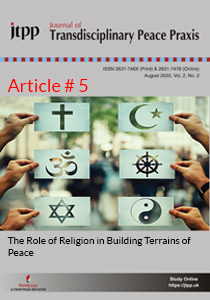Description
The Role of Religion in Building Terrains of Peace
Shoma Choudhury Lahiri (Faculty, Department of Sociology, St Xavier’s College (Autonomous) Kolkata, India, Miho Iwata (Assistant Professor of Sociology at Towson University, USA) & Bandana Purkayastha (Professor of Sociology and Asian & Asian American Studies, University of Connecticut, USA)
This paper analyses some aspects of the role of religion in building peace. If religion uses a definition of peace that is closely intertwined with social justice, the achievement of human rights and human securities becomes underscored.
This paper focuses on living religious practices people are engaged in their everyday lives, instead of a focus on religious texts or institution-focused religious practices. Social activities related with living religious practices at times help people, outside the particular religious community, to build a life of dignity and simultaneously expand the area of peace.
This paper uses cases drawn from India and the US that were reported in print and online media. The authors primarily draw upon the examples of Sikhism and Islam to highlight the connections between religions and peace, though we selectively refer to Hinduism and Christianity as dominant religions in each country.
It is further shown that both groups have emphasised religious identity in public spaces amidst conflicts and have simultaneously reached beyond their religious boundaries to forge relationships with other communities through education and practical help. Reflecting on social actions inspired by religions enables us to analyse some of the underlying dimensions of religions that are important for building and sustaining peace.





